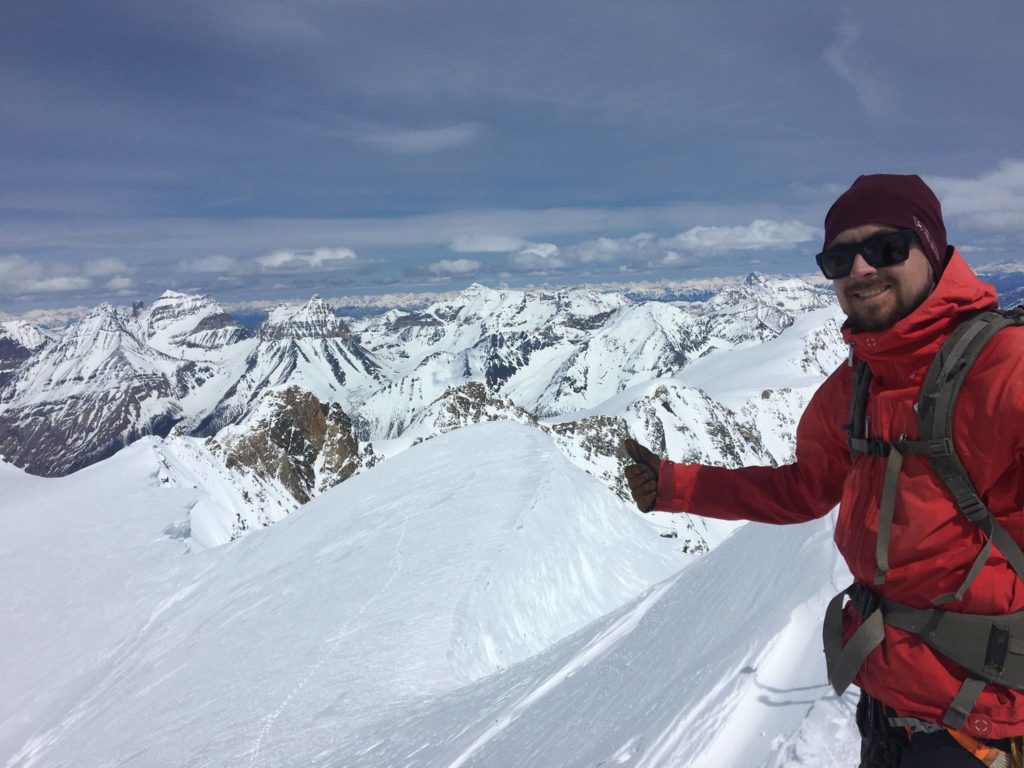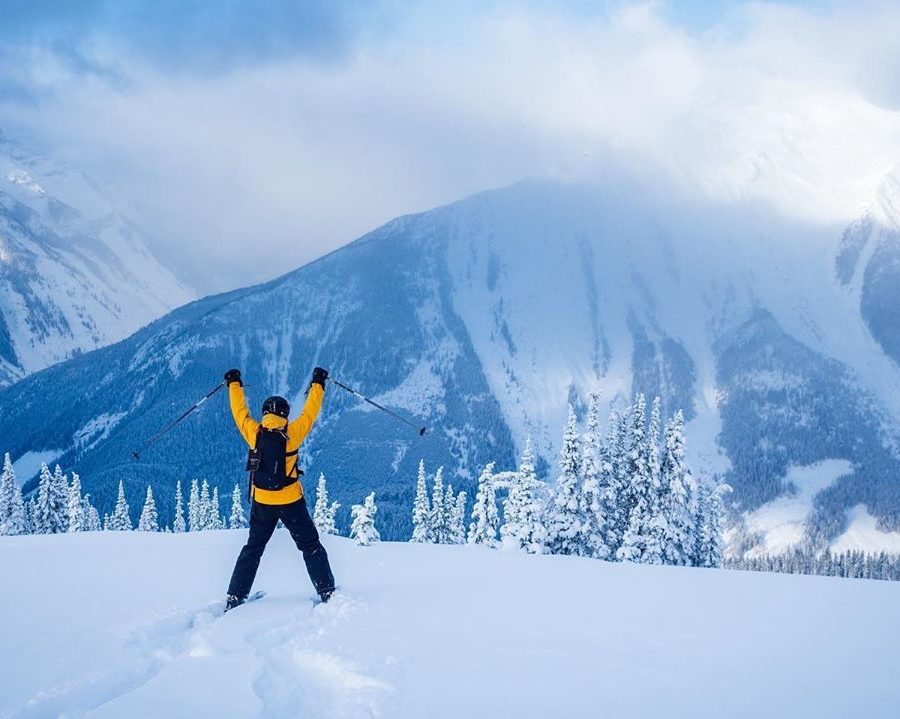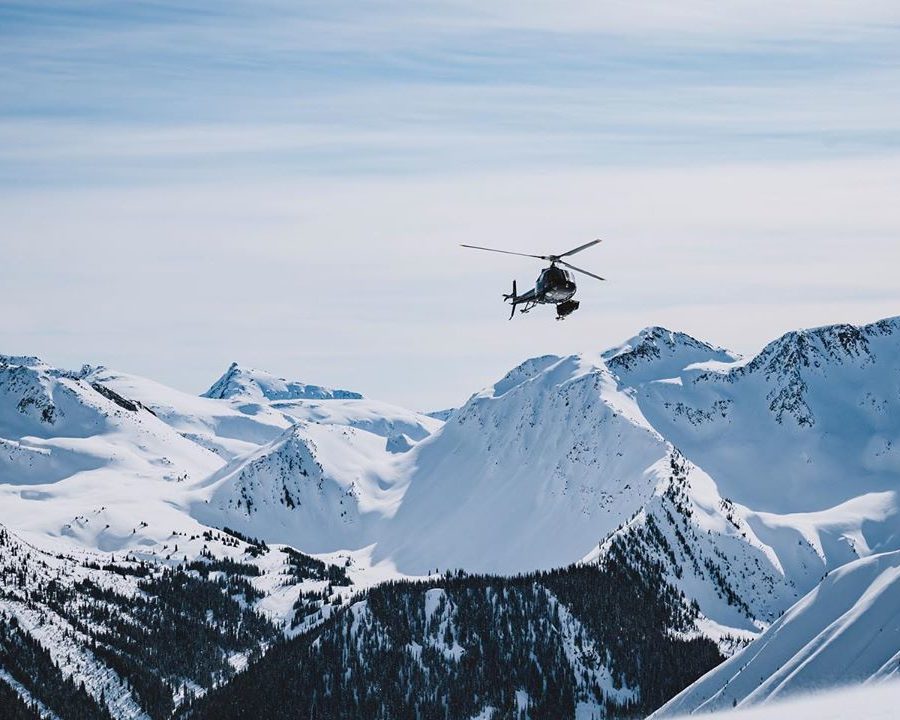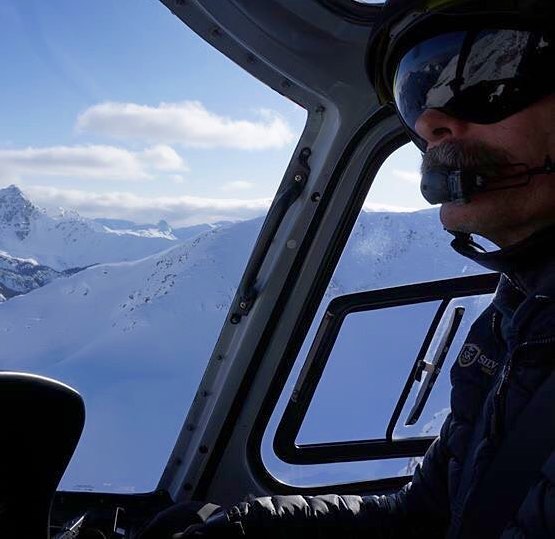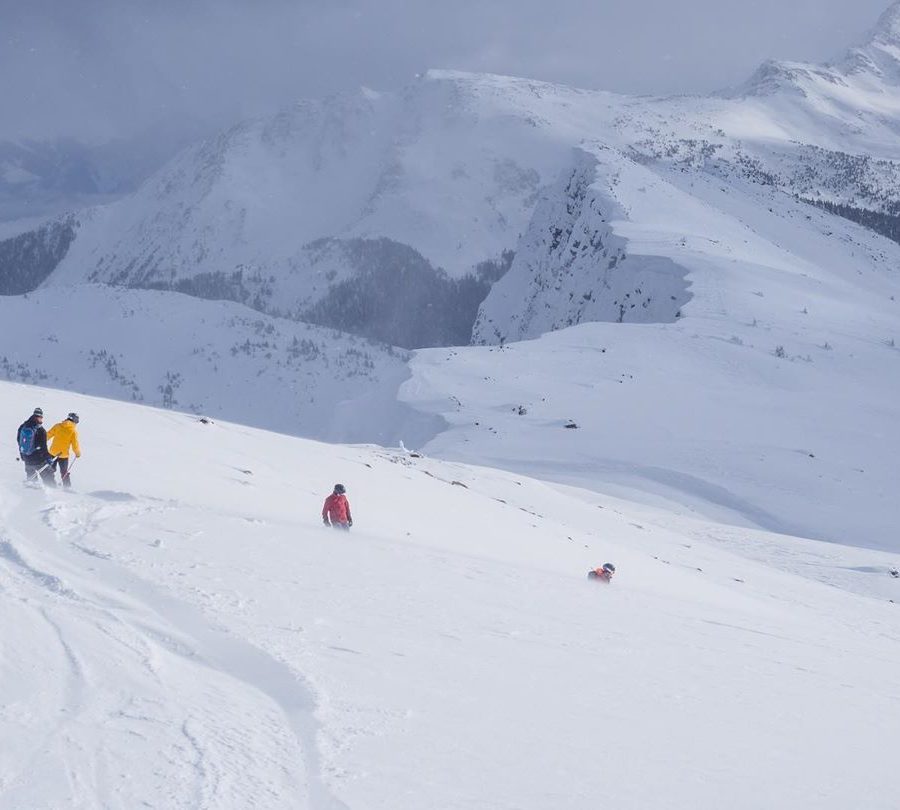After losing his vision in 2019, our former guide and founder of Braille Mountain Initiative, Tyson Rettie, had to leave his role at Great Canadian Heli-Skiing. He thought that he would never heli-ski again, but Great Canadian has invited Tyson back to fulfill his dream of heli-skiing as a blind skier. Tyson will be joined by fellow blind skier and Paralympic gold medallist, Mark Bentz.
Tyson and Mark will attempt to ski 25,000 vertical feet, with our guides as their eyes. Their fundraiser for the event will continue to provide visually-impared people with the tools and opportunities to get into the backcountry. Their aim is to also shift the perception of what visually-impared people are capable of. As Tyson says, “people could be surprised that a couple of blind guys can ski 8 or 9 thousand metres.”
All proceeds from the fundraiser will go to Braille Mountain Initiative. Donations can be a flat amount, or a pledge to donate an amount per vertical foot that Tyson and Mark ski. The funds will be used to provide more life-changing backcountry adventures for blind and visually-impared people, creating more Best Day Evers for more people in the mountains.
You can help by making a donation!
Tyson
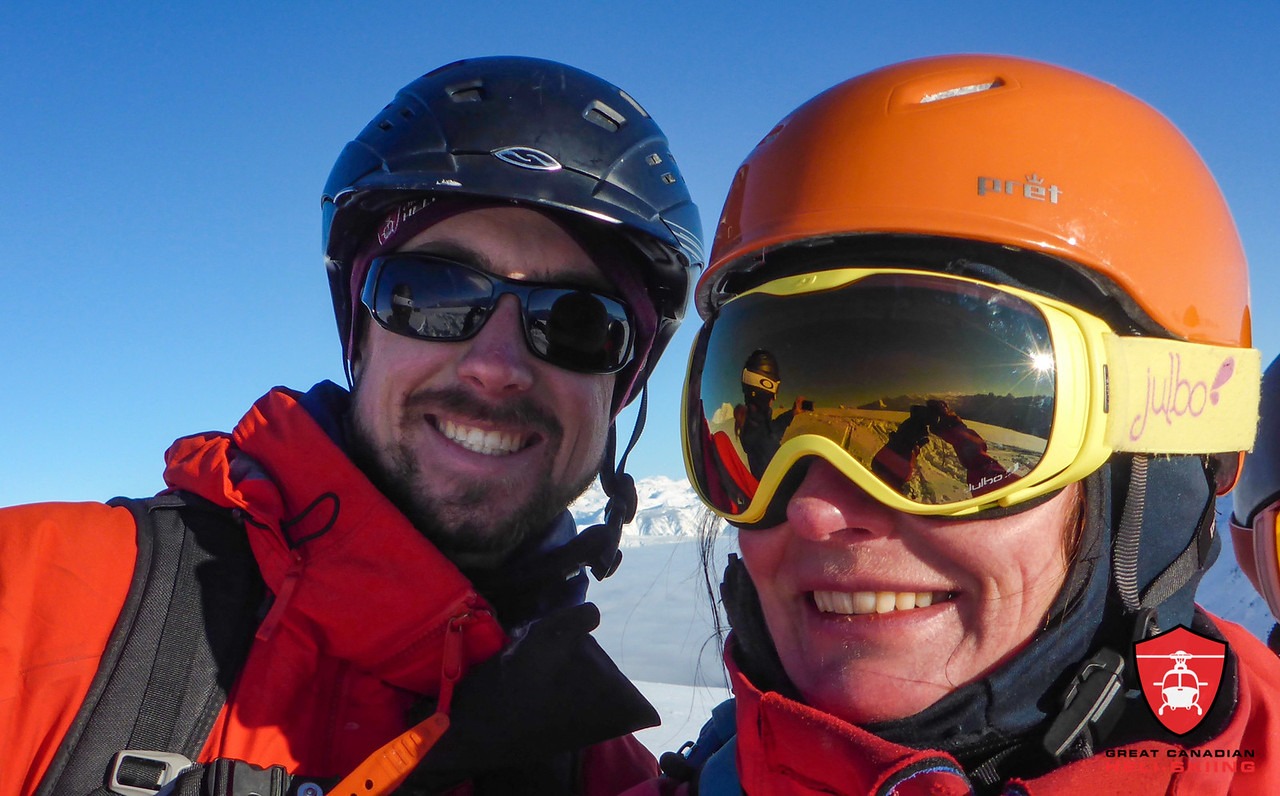
Tyson was a full-time guide with Great Canadian Heli-Skiing for two winter seasons before he was diagnosed with a rare condition called Leber’s Hereditary Optic Neuropathy. In 2018, Tyson gradually began to lose his vision, and by 2019 he was completely blind.
As Tyson’s vision degenerated, he knew he could no longer ski guide, but continued ski touring with his friends. Still wanting to work in the industry, he quickly found a lack of guided backcountry skiing opportunities for visually-impared people. Tyson wanted to share the sense of freedom and independence he had while he was backcountry skiing, and make the sport more inclusive, so he started Braille Mountain Initiative. He continues to work as an avalanche professional with Avalanche Canada, using a screen-reading tool to help him interpret data and do his job as an avalanche forecaster.
Although this will be his first time heli-skiing blind, Tyson has already completed many successful backcountry ski touring trips with Braille Mountain Initiative participants. He also still regularly skis in the backcountry with his friends. “With the help of a couple friends, I skied the 1,700 metre descent from the summit of Mt Jumbo to Commander Creek. It was truly a best day ever. I felt the best I had since losing my vision, and I knew I had to share this feeling with other blind skiers.”
Mark
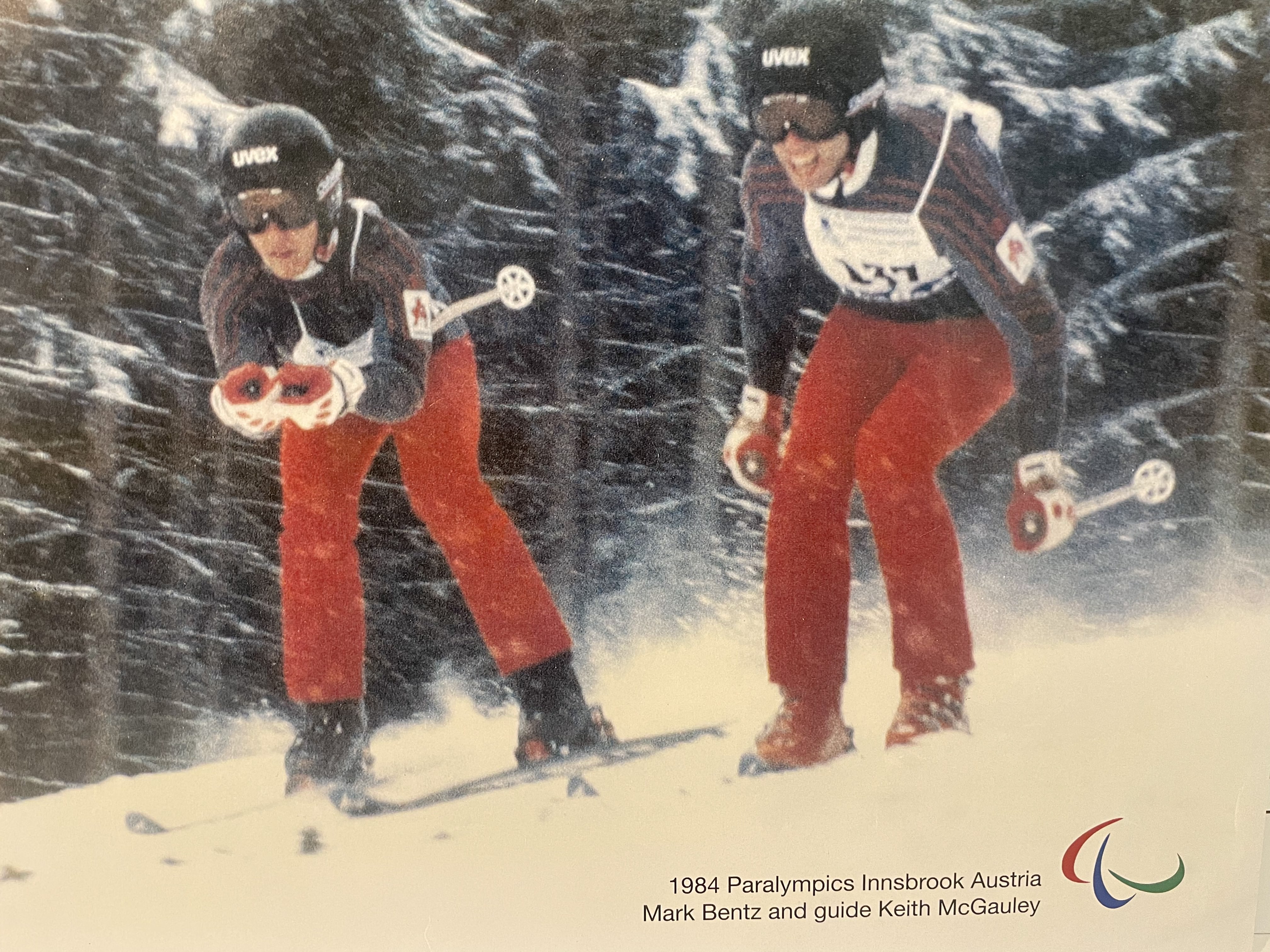
Fellow blind skier Mark Bentz could not believe what he was reading when he first discovered Braille Mountain Initiative. He had always wanted to ski in the backcountry, but never found the opportunity. Mark comes from a skiing family, and began to ski when he was just 2 years old. Growing up, his family would take Mark on skiing vacations, and he would ski regularly at Grouse Mountain in Vancouver.
Mark began to lose his eyesight at the age of 9, but continued to ski. In 1984, he went to the Paralympics, winning two gold medals in downhill and combined skiing. It was when Mark was training for the Paralympics that he fell in love with powder skiing. He trained at Red Mountain in Rossland, BC, and the mountain would receive huge amounts of powder snow. Mark describes skiing powder as experiencing total calmness. “For a blind person having to rely on their ears and touch, it’s a sensory overload. It’s exhausting having to navigate the world through your ears. But powder gives a sense of total calmness.”
After experiencing powder skiing, Mark began inquiring about backcountry skiing opportunities for himself. He quickly found that nobody would take him into the backcountry because of the risk. Mark describes discovering Braille Mountain Initiative as a dream come true. “Tyson is a dream-maker. I can’t believe something I’ve been trying to do for 40 years is actually a reality. Long story short—it’s completely changed my life.” Mark is incredibly excited to be joining Tyson for the day of heli-skiing at Great Canadian. He has been dreaming of heli-skiing for 35 years as it combines two of his passions—flying and skiing.
Blind Backcountry
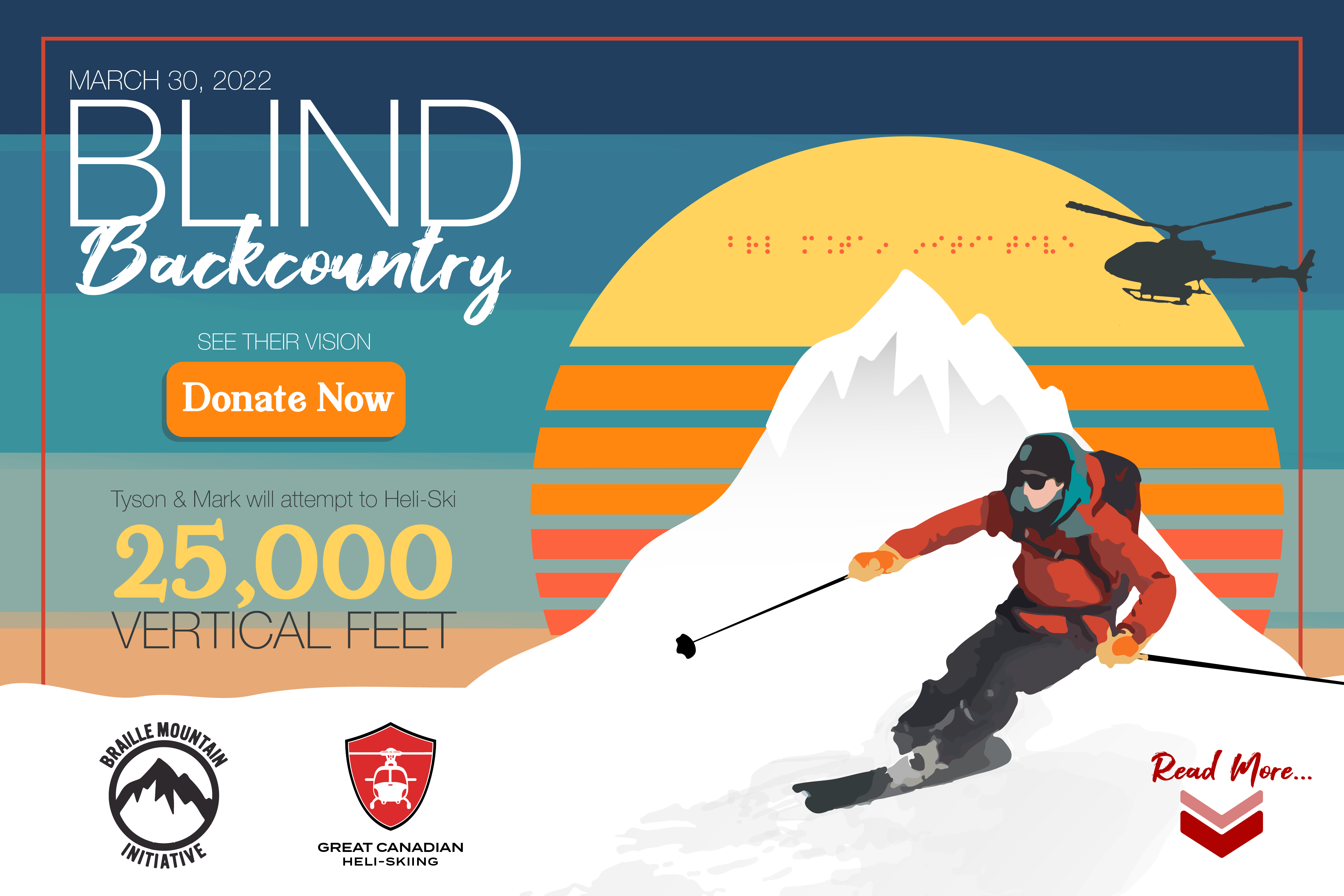
When skiing in a resort, visually-impared skiers use a radio headset, with sighted skier instructing them to avoid obstacles. When backcountry skiing, ideally the skiers will be able to ski in wide open alpine terrain without any obstacles. This means that they can ski without their headset, adding to the sense of freedom that backcountry skiing allows.
Tyson says that he prefers backcountry skiing, and considers it safer for visually-impared skiers. The appeal of skiing in solitude for blind people goes beyond avoiding queues and scoring fresh tracks—it eliminates the obstacle of other people on the mountain. And for Tyson, it’s about getting back to what he does best. “When you walk around town there’s always scenarios where you’re needing help. When I’m skiing in the backcountry, it feels like just a normal ski day.”
Help Tyson and Mark in their quest for equal access to backcountry sports!
